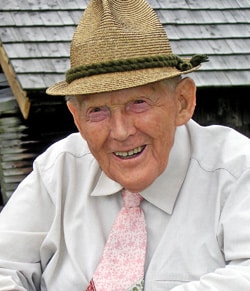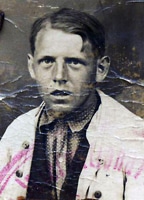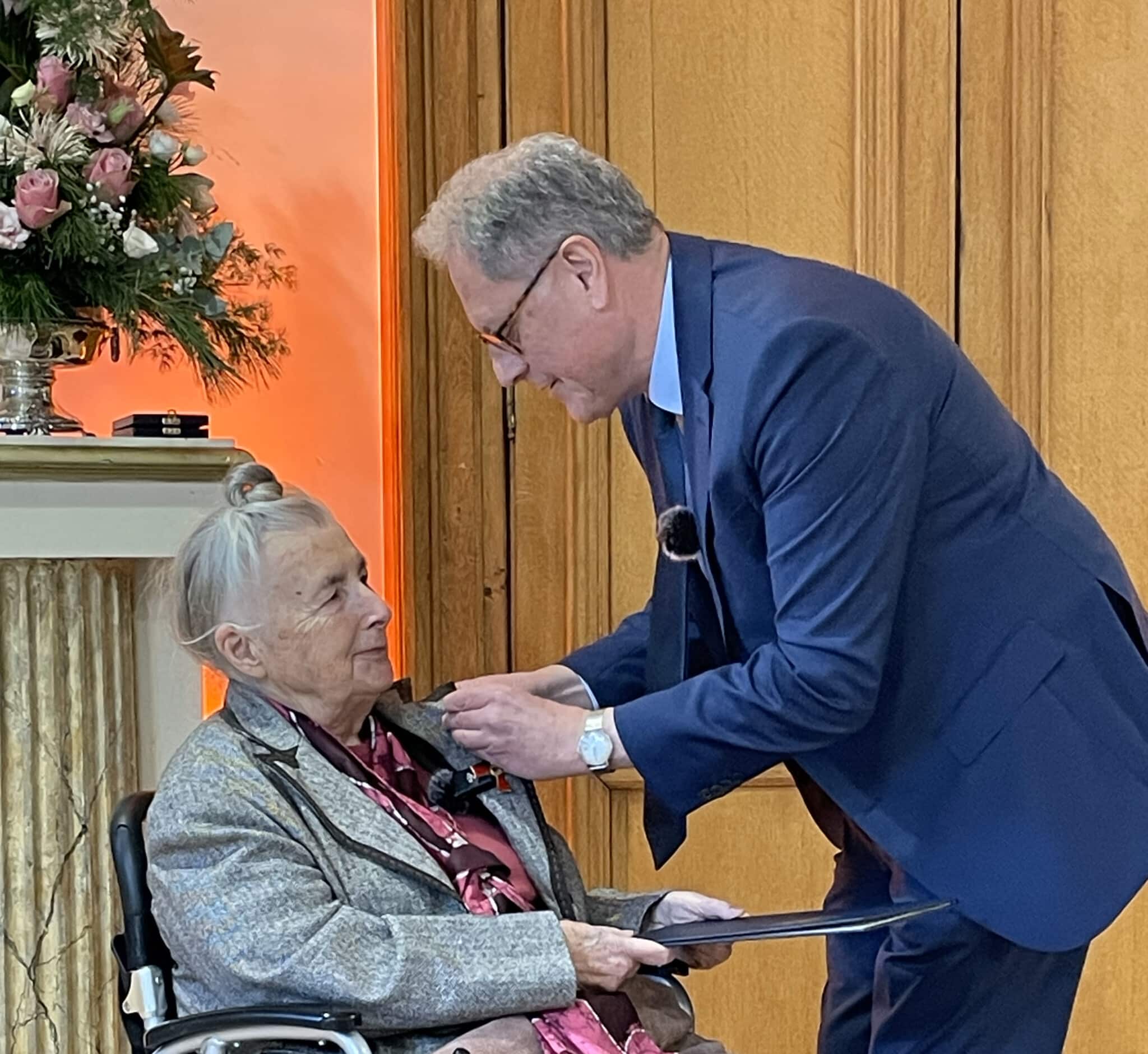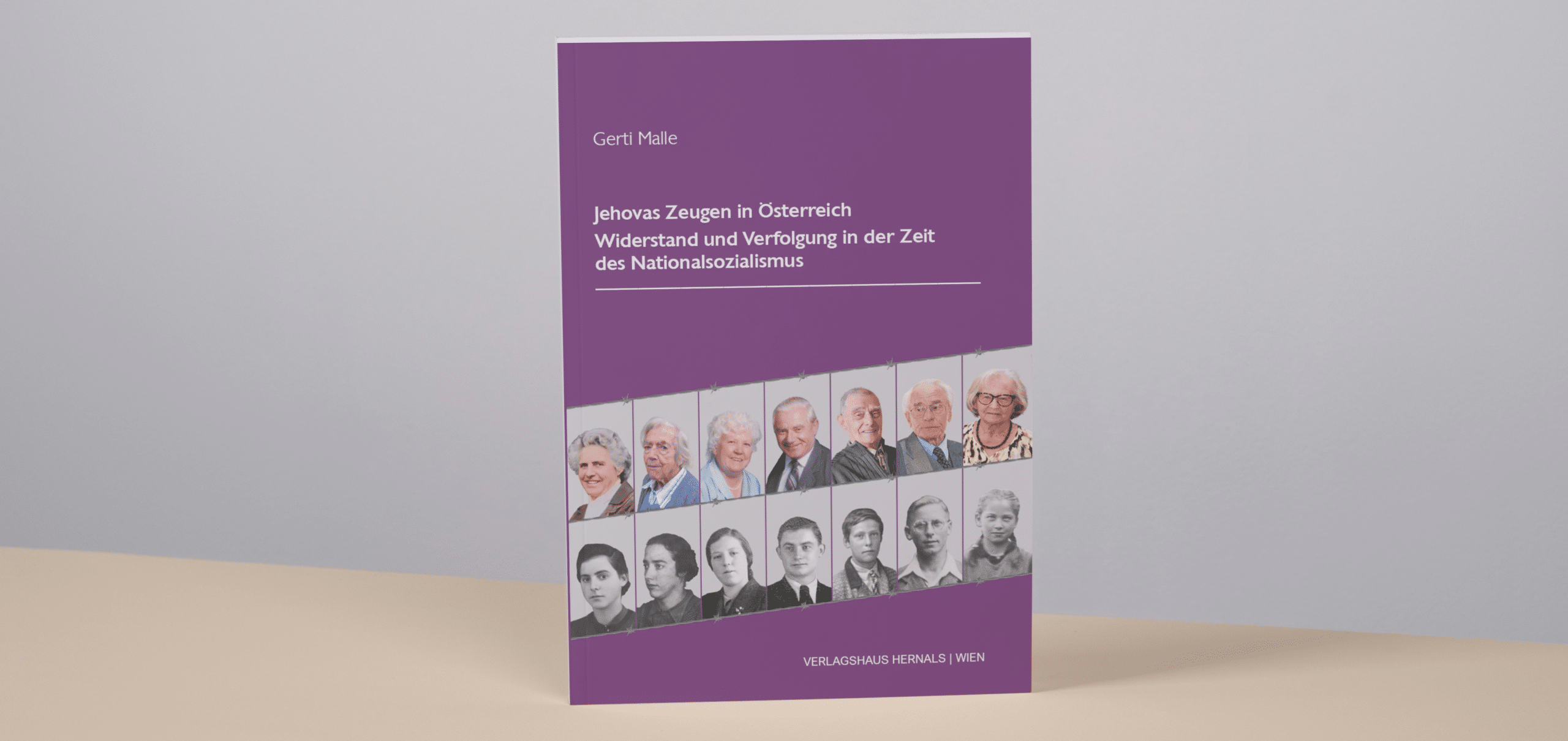During the 2009 school year tenth-grade students from Northrop High School in Fort Wayne, Indiana asked Leopold Engleitner the following question regarding his personal experiences during the Holocaust.

Leopold Engleitner

was born on July 23, 1905 in Austria. Physically infirm and shy from an early age, he lived in a world dominated by ostracism and poverty. As a young boy he experienced the devastating effects of World War I, and the Spanish Flu made his situation even worse. In1932 he became one of Jehovah’s Witnesses. As a result he suffered from the religious intolerance of his neighbors and the authorities during the period of Austrian Fascism from 1934 to 1938.
When Adolf Hitler occupied Austria in 1938, Leopold’s steadfast refusal to abandon his beliefs and to do military service in Hitler’s army led to conflict with the Nazi regime. From October 9, 1939, to July 15, 1943, he was interned in the concentration camps of Buchenwald, Niederhagen and Ravensbrück. In Niederhagen concentration camp he refused to sign the “Declaration” renouncing his faith, even though doing so would have meant he could go free. Despite the appalling treatment he was subjected to in the concentration camps, his iron will – his determination to stand up for just principles and his refusal to fight – could not be broken. Leopold never lost his optimism. In the concentration camp, he even bought a suitcase for the journey home though it seemed impossible he would ever make it.
In July 1943, weighing less than 62 pounds, he was released from Ravensbrück concentration camp on condition that he spend the rest of his life performing forced labor in agriculture. After returning home he worked on a farm in St. Wolfgang. Three weeks before the end of the war, on April 17, 1945, he received his call-up papers ordering him to join the German Wehrmacht. He refused to obey the call-up and decided to risk fleeing into the mountains of the Salzkammergut. There he hid in the Meistereben alpine hut and in a cave. He was hunted like an animal by the Nazis for weeks on end, but they could not find him.
On May 5, 1945, he was able to return home. Leopold Engleitner’s life proves that it was possible for an ordinary man to reject Hitler’s regime of terror.
After World War II Leopold, as a former concentration camp internee, was shunned by society and placed in the same category as the work-shy, asocial elements and criminals. Some of his contemporaries even denied that concentration camps had ever existed. Although he felt he was being misunderstood and unfairly treated, the iron will and inner strength that came from his religious convictions helped him withstand this difficult period as well. It was not until a chance meeting with Bernhard Rammerstorfer in 1994, who wrote his biography and produced the documentary Unbroken Will, that the tide began to turn. Leopold had to wait until he was almost one hundred years old to receive the recognition and social rehabilitation he deserved.
Though already far advanced in years, between 1999 and 2009 he has traveled more than 77,000 thousand miles across Europe and the USA to schools, memorial sites, and universities as a witness of history to ensure the past is not forgotten and has become a model of tolerance and peace.

